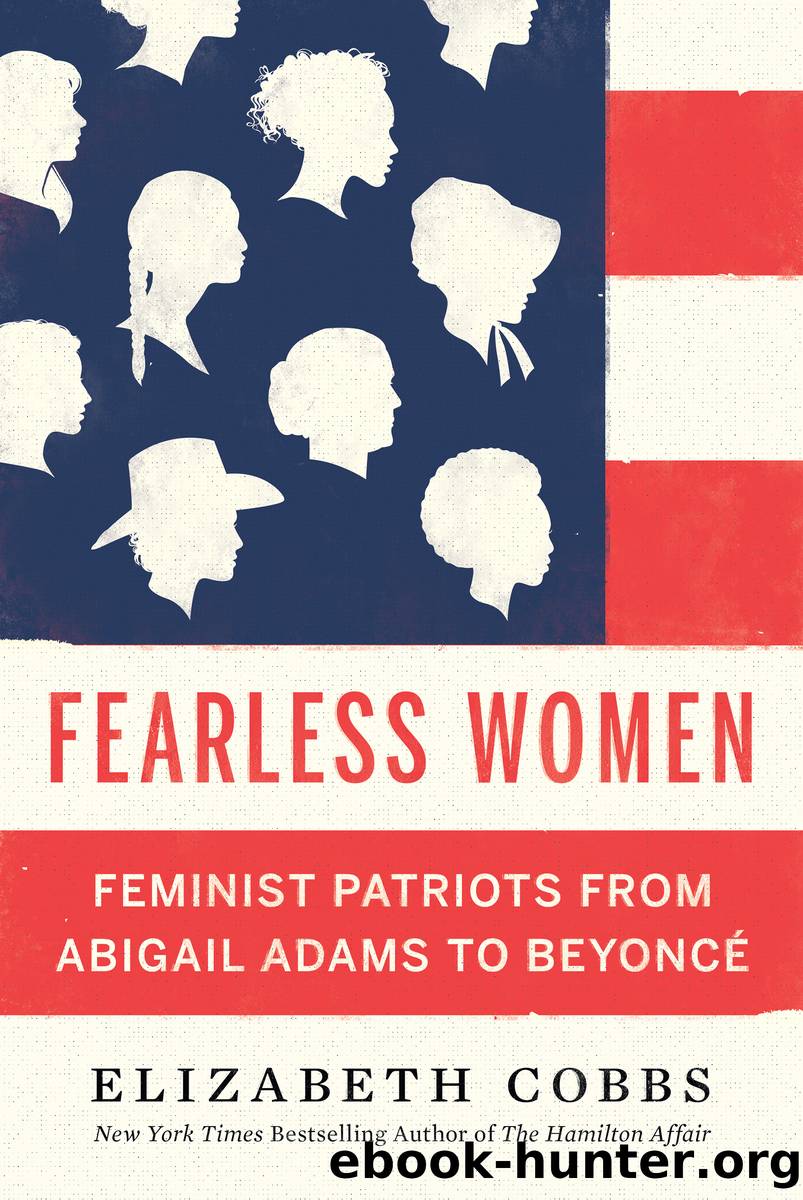Fearless Women by Elizabeth Cobbs

Author:Elizabeth Cobbs
Language: eng
Format: epub
Publisher: Harvard University Press
The Making of a Target
American law had long treated women as odd creatures, identical in their economic dependence, destiny as mothers, and need for male supervision. Until 1971, the Supreme Court judged women as a special class in response to every legal objection that doing so violated their Fourteenth Amendment right to equal treatment. When Susan B. Anthony and Virginia Minor tried to vote, courts ruled that being female disqualified them. In a myriad of ways afterward, the Supreme Court ruled that women, like children, could be excluded from a variety of adult roles. While the concept of âdue processâ meant the equal and fair application of the law to all citizens, the measure of âcitizenâ was implicitly male.
To courts, blanket restrictions on women seemed ânatural, necessary, and benign,â in the words of one scholar. In Bradwell v. Illinois (1873), the Court ruled that states could ban females from specific occupations. In Minor v. Happersett (1874), it decided that states could deny them the vote. In Muller v. Oregon (1908), it agreed that states could place limits on their work hours, and in Goesaert v. Cleary (1948) that states could require a male presence at work. In Hoyt v. Florida, in 1961, the Court declared that women did not have the same right as men to a jury of their peers. As attorney Ruth Bader Ginsburg remarked, prior to 1971 âthe Supreme Court never saw a sex classification it didnât like.â33
At the very same time, on criminal matters, courts held women to the exact same standards as men, resisting their perspective. For example, few judges understood that girls learned they were vulnerable targets of male assault the first time parents cautioned them to avoid adult menâand keep their legs firmly crossed at all times. Boys generally did not grow up with these warnings and their perceptions of safety did not form around them. When it came to the opposite sex, boys were generally encouraged to think like hunters, not prey. Courts exaggerated certain differences between men and women, while hardly acknowledging differences like this one at all.
Yvonne Swan was born in 1943 into the Sinixt Arrow Lakes Nation, following the matrilineal line of her mother, Lucy. She grew up in the northernmost reaches of Washington State, a region of blue lakes, gentle mountains, and tall ponderosa pine forests that soared straight to heaven. Bear cubs, deer, and friendly snakes peeped through the bushes looking for Yvonne, she thought, while bald eagles winged overhead. Indian lands surrounded her familyâs one-bedroom log cabin, tucked safely on the Colville Reservation that twelve nations called home. The most famous were the Nez Perce, once led by the legendary Chief Joseph, who evaded the US Army longer than anyone had ever thought possible. Yvonneâs father Ted, a logger, hailed from Idaho, where his landless Chippewa-Cree and Assiniboine Sioux family had found refuge with the Coeur dâAlene people.
Although the reservation stretched farther than Yvonne could imagine, her mother taught her that the Canadian government had seized most of their tribal lands in the nineteenth century.
Download
This site does not store any files on its server. We only index and link to content provided by other sites. Please contact the content providers to delete copyright contents if any and email us, we'll remove relevant links or contents immediately.
| Africa | Americas |
| Arctic & Antarctica | Asia |
| Australia & Oceania | Europe |
| Middle East | Russia |
| United States | World |
| Ancient Civilizations | Military |
| Historical Study & Educational Resources |
Cat's cradle by Kurt Vonnegut(15339)
Pimp by Iceberg Slim(14489)
4 3 2 1: A Novel by Paul Auster(12377)
Underground: A Human History of the Worlds Beneath Our Feet by Will Hunt(12090)
The Radium Girls by Kate Moore(12019)
Wiseguy by Nicholas Pileggi(5771)
The Fire Next Time by James Baldwin(5432)
Perfect Rhythm by Jae(5398)
American History Stories, Volume III (Yesterday's Classics) by Pratt Mara L(5301)
Paper Towns by Green John(5180)
Pale Blue Dot by Carl Sagan(4996)
A Higher Loyalty: Truth, Lies, and Leadership by James Comey(4954)
The Mayflower and the Pilgrims' New World by Nathaniel Philbrick(4495)
The Doomsday Machine by Daniel Ellsberg(4485)
Killers of the Flower Moon: The Osage Murders and the Birth of the FBI by David Grann(4442)
The Sympathizer by Viet Thanh Nguyen(4385)
Too Much and Not the Mood by Durga Chew-Bose(4338)
The Borden Murders by Sarah Miller(4313)
Sticky Fingers by Joe Hagan(4188)
